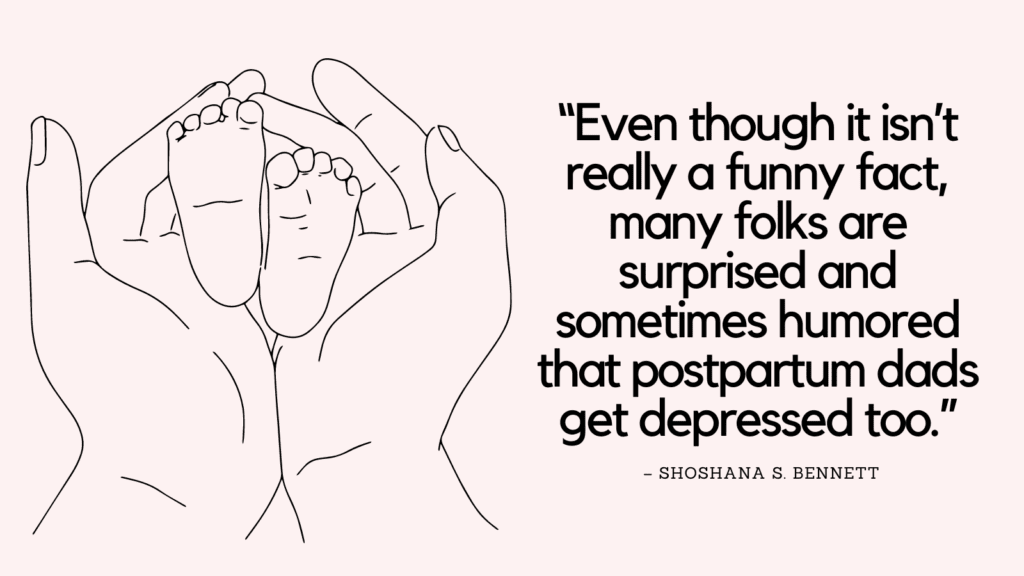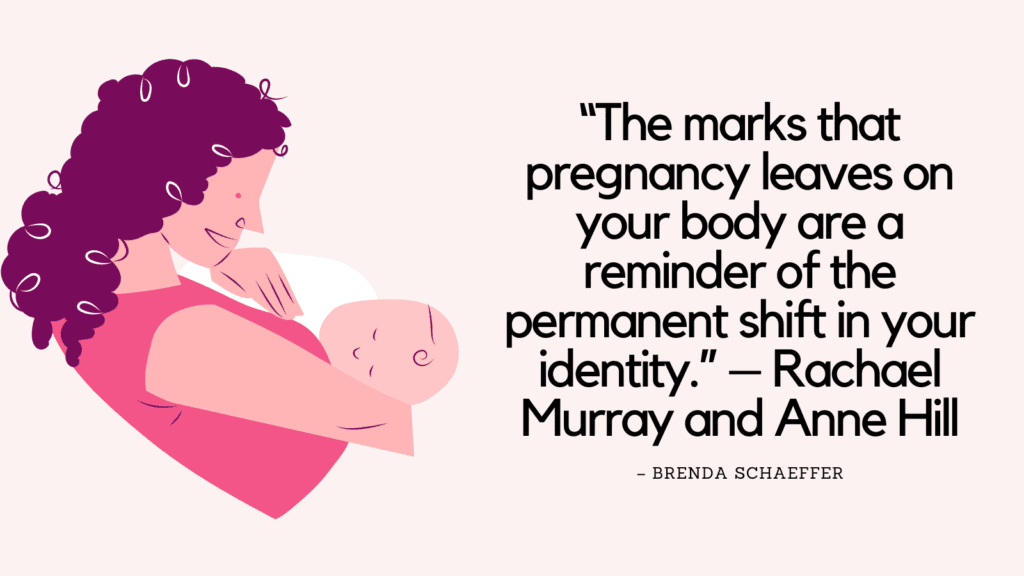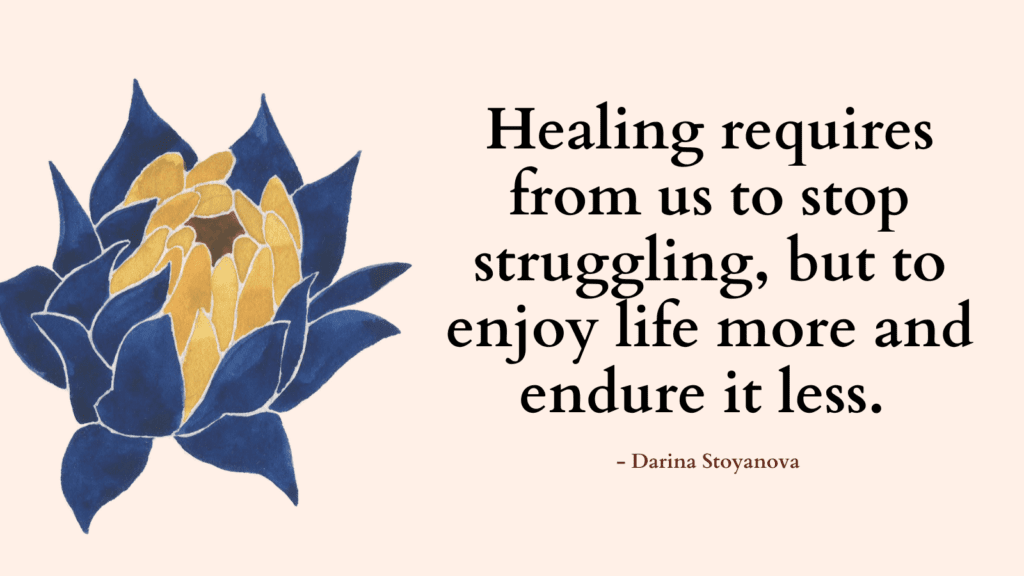This post contains some of the best postpartum quotes for husband.
Postpartum Quotes For Husband
1. “In the United States, the ratio of women to men suffering from depression is 2 to 1 (Keita, 2007). Regardless of who experienced the depression after the birth of their baby, both partners invariably suffer.” – Karen Kleiman
2. “Influential companies like Facebook and Microsoft have adopted parental-leave policies of up to four months, replacing the standard sixweek maternity leave for women and acknowledging the importance of partner leave.” – Kimberly Ann Johnson
3. “Depression sets the stage for many such paradoxes for any postpartum couple. It is precisely these paradoxes, fueled by depressive thinking, which can drive a wedge into the connection between the two of you. Self-doubt permeates the marital system after symptoms take hold.” – Karen Kleiman
4. “Although statistics vary, the worldwide estimate for the prevalence of postpartum depression (PPD) ranges from 5% to 25% (Gaynes et al., 2005) and about 10% of men (Paulson & Bazemore, 2010).” – Karen Kleiman
5. “If you are the non-depressed partner, it will be helpful if you can remind your partner that they are not to blame and that the two of you are on the same team here, working on making things feel strong again.” – Karen Kleiman
6. “Even without depression, the postpartum period challenges each and any marriage with stressors of unprecedented proportion. You already know how sleep deprivation, unpredictability, idealistic expectations, and a new baby can combine in combustible fashion!” – Karen Kleiman
7. “Postpartum couples crave and deserve relief. The birth of a baby is associated with some of life’s most poignant contradictions: joy and despair, pleasure and grief, elation and exhaustion, euphoria and anxiety. The impact of these incongruent states of emotions can wear heavily on the spirit of a marriage.” – Karen Kleiman
8. “No one will argue the point that postpartum couples need to take better care of themselves. For a period of time, postpartum couples understandably feel obliged to focus solely on the baby or how the baby is impacting their lives. It’s hard not to.” – Karen Kleiman
9. “Postpartum depression is very real and its impact on the family can be devastating.” – Karen Kleiman
10. “Sometimes, when ambivalence drops in on a marriage struggling to recover from postpartum depression, it can result from sheer exhaustion. It is no secret the sleep deprivation can be the greatest enemy of all. Working on the marriage can just feel like too much to do, with so much going on and so little energy to draw upon.” – Karen Kleiman
Related: Postpartum Anxiety Quiz (+ 5 Tips On Overcoming PPA)
11. “When depression unexpectedly inhabits a postpartum household, it does not discriminate. It oft en takes on a life of its own, affecting healthy marriages, marriages in trouble, new marriages, or long-term marriages. When the disturbance is severe, it can affect the way the couple views each other and themselves as a unit.” – Karen Kleiman
12. “Conflicting expectations are hard on husbands too. Even though cultural expectations now demand that fathers contribute more to home caring and child care, fathers still feel the burden (perhaps self-imposed, perhaps externally imposed) to be the primary breadwinner. These new fathers are thus often caught in the crosscurrents of conflicting norms—to be fully engaged at work and to be fully engaged at home.” – Sara E. Rosenquist
13. “Perhaps most astonishingly, some men experience a kind of pregnancy. Anthropologists long ago observed that in some (usually pre-industrialized) cultures, men exhibited symptoms of pregnancy when their wives were pregnant and sometimes even went through a false labor and mock delivery in a highly ritualized form.” – Sara E. Rosenquist
14. “The weight of postpartum depression unsettles the equilibrium of a marriage to say the least. Negotiations break down, dismantling all good intentions.” – Karen Kleiman
15. “Within the context of postpartum depression, some women respond to their husband’s depression with skepticism or impatience. Something like, Oh great, now I have to take care of YOU, too!” – Karen Kleiman
Related: Do I Have Seasonal Depression Quiz (+Top 12 Natural Ways To Boost Your Mood)
16. “Fathers seem to have more tension and short-temperedness as the main symptoms of their PPD. Other feelings are confusion, fear, anger, frustration, and helplessness. Fathers with PPD are concerned about their partners, their disrupted family life, and their financial problems.” – Shoshana S. Bennett
17. “For a variety of reasons, a man experiences his partner’s pregnancy emotionally, and sometimes those emotions translate into physical symptoms. Not incidentally, men also experience the birth with a wide range of emotions and biological changes as well. However, we usually don’t hear much about these phenomena.” – Sara E. Rosenquist
18. “The early postpartum weeks and months divert couples away from themselves and invariably diminish the time they have for each other. More specifically, it diminishes the time a woman has for her partner, which can reduce his marital satisfaction.” – Karen Kleiman
Related: What is Concealed Depression? (Effective 3-Step Guide To Overcome High Functioning Depression)
19. “Do poor marital relationships cause postpartum depression or does postpartum depression cause poor marital relationships? Both are true, depending on the circumstances, but there is no clear causal association that would hold true across the board.” – Karen Kleiman
20. “Even though it isn’t really a funny fact, many folks are surprised and sometimes humored that postpartum dads get depressed too.” – Shoshana S. Bennett
21. “The strongest predictor of whether a father will become depressed postpartum is the presence of PPD in the mother. The father whose partner has PPD has between a 24 to 50 percent chance of developing PPD symptoms.” – Shoshana S. Bennett
Related: Top 10 Gratitude Exercises To Practice Even When Depressed

Can Fathers Experience Postpartum Depression?
Yes, fathers can experience postpartum depression, although it is less common compared to mothers.
Postpartum depression in fathers is often referred to as paternal postpartum depression or paternal perinatal depression.
Research suggests that between 5% and 10% of fathers may experience depressive symptoms during the first year after their child’s birth. (source)
Several factors contribute to paternal postpartum depression, including hormonal fluctuations, sleep deprivation, increased stress, and changes in the family dynamic.
Additionally, having a partner who is experiencing postpartum depression can also increase the risk of fathers developing similar symptoms.
How Can Fathers Cope With Postpartum Depression?
If you are a father experiencing postpartum depression, it’s essential to seek support and professional help.
Here are some scientific suggestions to help fathers cope with postpartum depression:
1. Open up and talk about your feelings
Share your emotions with your partner, trusted friends, or a mental health professional.
Expressing your concerns and experiences can provide relief and allow others to offer support.
2. Prioritize self-care
Take care of your physical and mental well-being through regular exercise, a healthy diet, and sufficient sleep.
Self-care activities like relaxation exercises, hobbies, or engaging in activities you enjoy can also be beneficial.
3. Seek social support
Join support groups specifically designed for fathers experiencing postpartum depression.
Connecting with other fathers who are going through similar challenges can provide validation, understanding, and helpful coping strategies.
4. Communicate with your partner
Maintain open and honest communication with your partner.
Share your feelings and work together to support each other’s mental health.
5. Get professional help
Consult with a mental health professional, such as a psychologist or therapist, who can assess your symptoms and provide appropriate guidance and treatment options.
Therapy, including cognitive-behavioral therapy (CBT) or counseling, can be effective in managing postpartum depression.
Remember, seeking help is a sign of strength, and with the right support and treatment, postpartum depression can be successfully addressed, allowing you to better enjoy your role as a father.



